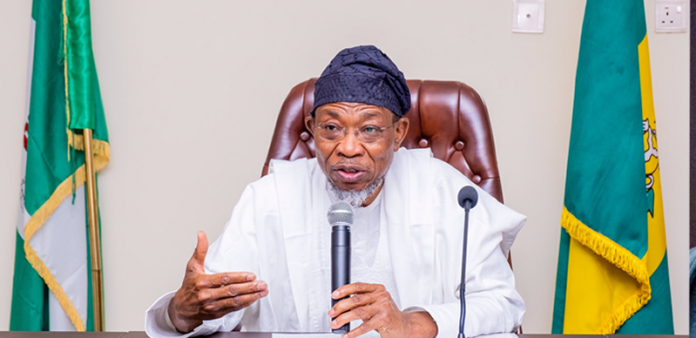The federal government has approved 12,000 expatriate quota licenses for foreigners seeking to work in Nigeria, while 2,000 applications from businesses are being processed.
Interior Minister Rauf Aregbesola’s spokesman, Sola Fasure, revealed this in a statement on Friday.
On the second day of the sixth edition of the Annual Kaduna Economic Investment (KADINVEST) in Kaduna, the minister stated this.
Mr Aregbesola stated that since its inception, the ministry has dealt with 14,690 companies and granted 126,893 quota licenses to expatriates.
Read Also: Oil trades at $78.09 per barrel, approaching a three-year high
“We have registered over 2,000 companies since August 2019, and over 12,000 expatriates have been granted work permits in Nigeria,” he said. “We now handle applications with dispatch, and any firm or organization with a genuine need for expatriates is encouraged to submit their applications. We’ll treat it with the respect it deserves.”
Despite security challenges, the minister emphasized that Nigeria remains a profitable investment destination.
”Despite the difficulties we have faced, it may be of interest to us to know that Nigeria remains an investor’s dream, with abundant raw materials, a highly skilled and affordable workforce, and Africa’s largest market for goods and services. Mr Aregbesola stated in the statement, “The return on investment has always been mouth-watering.”
He praised the Kaduna government, the Nigerian Investment Promotion Commission (NIPC), and the Nigerian Economic Summit Group (NESG) for hosting the summit and selecting the theme of “Towards a Sustainable Knowledge-Based Economy.”
“Looking at the history of economic development, we can see that there is a quantum leap in economic production at the onset of the Industrial Revolution circa 1760 in England, compared to what was achieved during the feudal era,” Mr Aregbesola continued.
“The introduction of machines and factory systems that enabled mass production of goods ushered in a new era of economic prosperity for industrialized nations.”
Read Also: Buhari looking for alternative funding for the rail project, says Amaechi
He noted that the past 50 years had created a huge chasm between former colonial countries and societies still stuck in feudal productions.
“Two and a half centuries from now, the paradigm of production will be dramatically altered by advances in knowledge,” the interior minister predicted. “In the immediate Industrial Revolution era, economic production was based on factors such as proximity to raw materials and markets, among others. As a result, it is said that the concept of comparative advantage favors places where these factors are more important than others.”
Join Television Nigerian Whatsapp Now
Join Television Nigerian Facebook Now
Join Television Nigerian Twitter Now
Join Television Nigerian YouTUbe Now





